Грег Иган - Distress
Здесь есть возможность читать онлайн «Грег Иган - Distress» весь текст электронной книги совершенно бесплатно (целиком полную версию без сокращений). В некоторых случаях можно слушать аудио, скачать через торрент в формате fb2 и присутствует краткое содержание. Жанр: Фантастика и фэнтези, на английском языке. Описание произведения, (предисловие) а так же отзывы посетителей доступны на портале библиотеки ЛибКат.
- Название:Distress
- Автор:
- Жанр:
- Год:неизвестен
- ISBN:нет данных
- Рейтинг книги:3 / 5. Голосов: 1
-
Избранное:Добавить в избранное
- Отзывы:
-
Ваша оценка:
- 60
- 1
- 2
- 3
- 4
- 5
Distress: краткое содержание, описание и аннотация
Предлагаем к чтению аннотацию, описание, краткое содержание или предисловие (зависит от того, что написал сам автор книги «Distress»). Если вы не нашли необходимую информацию о книге — напишите в комментариях, мы постараемся отыскать её.
Distress — читать онлайн бесплатно полную книгу (весь текст) целиком
Ниже представлен текст книги, разбитый по страницам. Система сохранения места последней прочитанной страницы, позволяет с удобством читать онлайн бесплатно книгу «Distress», без необходимости каждый раз заново искать на чём Вы остановились. Поставьте закладку, и сможете в любой момент перейти на страницу, на которой закончили чтение.
Интервал:
Закладка:
I had no idea; I knew even less about South African cultural politics than I knew about ATMs. Mosala would hardly be the first prominent scientist to leave the country, but she would be one of the most celebrated—and the first to emigrate to Stateless. Chasing money and prestige at a world-class institution was one thing, but it would be hard to read a move to Stateless (which could offer neither) as anything but a deliberate renunciation of her nationality.
I paused on the landing, and stared at my useless electronic teat. AC? Mainstream AC? Sisyphuswas silent. Whoever they were, Sarah Knight had managed to find them. I was beginning to feel an ache in the pit of my stomach every time I thought about what I’d done to her. It was clear that she’d prepared for this job meticulously, researching every issue surrounding Mosala—and coming from politics, where nothing on the nets was true, she’d probably gone out and talked to everyone in the flesh. Someone must have told her about the rumors, and put her on the trail which led to Kuwale—all off the record, of course. I’d stolen the project, walked in cold, and now I couldn’t even tell whether I was making a documentary about an emigrant anarcho-physicist in fear of her life… or whether I was jumping at shadows, and the only threat anyone on Stateless faced was being goaded into giving Janet Walsh some long overdue career advice.
I had Hermescall every hotel on the island, and inquire about a guest called Akili Kuwale.
No luck.
In my room, I turned up the windows' sound insulation, and tried to psych myself into doing some work. The next morning I was scheduled to film a lecture by Helen Wu, chief advocate of the view that Mosalas methodology verged on circular logic. Before letting Munroe talk me into filming the inland divers, I’d been planning to spend the whole afternoon reading Wu’s previous papers; I had a lot of catching up to do.
First, though…
I scanned the relevant databases (eschewing help from Sisyphus,and taking three times as long). The Pan-African Cultural Defense Front turned out to be a loose affiliation of fifty-seven radical traditionalist groups from twenty-three nations, with a council of representatives which met each year to decide strategies and issue proclamations. PACDF itself was twenty years old; it had appeared in the wake of a resurgence of the traditionalist debate in the early thirties, when a num ber of academics and activists, mostly in central Africa, had begun to speak of the need to "re-establish continuity" with the pre-colonial past. Political and cultural movements of the previous century—from Senghor’s negritude to Mobutu’s "authenticity" to Black Consciousness in all its forms—were dismissed as corrupt, assimilationist, or overly concerned with responding to colonialism and Westernization. The correct response to colonialism—according to the most vocal of the new traditionalists—was to excise it from history completely: to aim to behave, in its aftermath, as if it had never happened.
PACDF was the most extreme manifestation of this philosophy, taking an uncompromising and far from populist line. They decried Islam as an invader religion, as much as Christianity or Syncretism. They opposed vaccination, bioengineered crops, electronic communications. And if there was more to the group than a catalog of the foreign (or local, but insufficiently ancient) influences they explicitly renounced, they might have found it hard to differentiate themselves without such a hit-list. Many of the policies they advocated—wider official use of local languages, greater support for traditional cultural forms—were already high on the agenda of most governments, or were being lobbied for from other quarters. PACDF’s raison d'être seemed to consist of being greater purists than anyone else. When the most effective anti-malarial vaccine on the planet was manufactured in Nairobi—based on research carried out in that well-known imperialist superpower, Colombia—condemning its use as "a criminal betrayal of traditional healing practices" sounded like sheer fundamentalist perversity to me.
If Violet Mosala had chosen to emigrate to Stateless, I would have thought they’d be glad to be rid of her. She might have been a hero on half the continent, but to PACDF she could never have been anything but a traitor. And I could find no report of a death threat, so maybe Savimbi’s claim had been pure hype; the reality might have involved nothing more than an anonymous call to his news desk.
I plowed on, regardless. Maybe Kuwale’s mysterious faction had revealed themselves by taking part in the other side of the debate? There was certainly no shortage of vocal opposition to PACDF—from more moderate traditionalists, from numerous professional bodies, from pluralist organizations, and from self-described technoliberateurs.
Mismatched initials aside, I couldn’t quite see a member of the African Union for the Advancement of Science collaring journalists in airports and asking them to play unofficial bodyguard to a world-renowned physicist. And while the African Pluralists League organized worldwide student exchange programs, theatre and dance tours, physical and net-based art exhibitions, and lobbied aggressively against cultural isolationism and discriminatory treatment of ethnic, religious and sexual minorities… I doubted they had time on their hands to fret about Violet Mosala.
The late Muteba Kazadi had coined the term technoliberation, to mean both the empowerment of people through technology, and the "liberation" of the technology itself from restrictive hands. Muteba had been a communications engineer, poet, science writer—and Minister for Development in Zaire in the late thirties. I viewed some of his speeches, impassioned pleas for "the use of knowledge in the service of freedom"; he’d called for an end to the patenting of engineered crops, public ownership of communications resources, and a universal right of access to scientific information. As well as championing the obvious pragmatism of "liberation biology" (though Zaire had never gone renegade and used unlicensed crops), he’d spoken of the long-term need for African nations to participate in pure research in every area of basic science—an extraordinary stand at a time when such activities were deeply unpopular in the wealthiest countries on the planet, and unthinkable in terms of his own government’s immediate priorities.
Muteba had had his eccentricities, his three biographers concurred, with a leaning toward Nietzschean metaphysics, fringe cosmology, and dramatic conspiracy theories—including the old one that "El Nido de Ladrones," the bioengineered haven built by drug runners on the Peruvian-Colombian border, had been H-bombed in 2035 not because the modified forest was out of control and threatening to overrun the whole Amazon basin, but because some kind of "dangerously liberating" neuroactive virus had been invented there. The act had been an obscenity, thousands of people had died—and the public outrage it attracted had quite possibly helped to save Stateless from a similar fate—but I thought the more prosaic explanation was far more likely to be true.
Learned commentators from every part of the continent stated that Muteba’s legacy lived on, and that proud technoliberateurs were active across the face of Africa, and beyond. I found it difficult to pin down his direct intellectual descendants, though; hundreds of academic and political groups, and tens of thousands of individuals, cited Muteba as a source of inspiration—and many people who’d spoken out against PACDF in net debates had explicitly labeled themselves technoliberateurs —but each seemed to have adapted the philosophy to a slightly different agenda. I had no doubt that every one of them would have been horrified at the thought of Violet Mosala coming to harm—but I was no wiser as to who might have taken it upon themselves to watch over her.
Читать дальшеИнтервал:
Закладка:
Похожие книги на «Distress»
Представляем Вашему вниманию похожие книги на «Distress» списком для выбора. Мы отобрали схожую по названию и смыслу литературу в надежде предоставить читателям больше вариантов отыскать новые, интересные, ещё непрочитанные произведения.
Обсуждение, отзывы о книге «Distress» и просто собственные мнения читателей. Оставьте ваши комментарии, напишите, что Вы думаете о произведении, его смысле или главных героях. Укажите что конкретно понравилось, а что нет, и почему Вы так считаете.
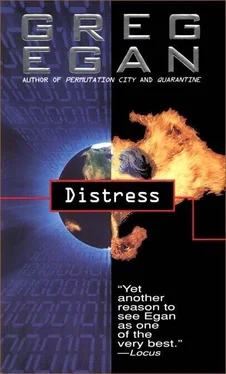

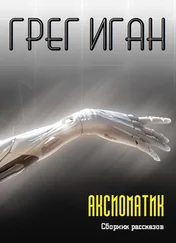
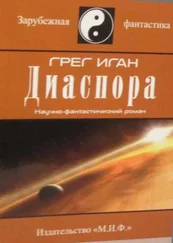
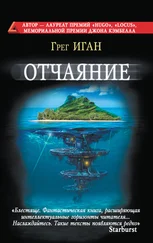
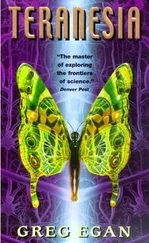


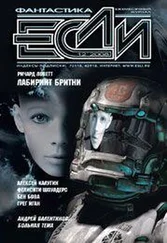
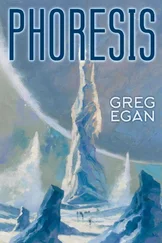
![Грег Иган - Рассказы [компиляция]](/books/419837/greg-igan-rasskazy-kompilyaciya-thumb.webp)
